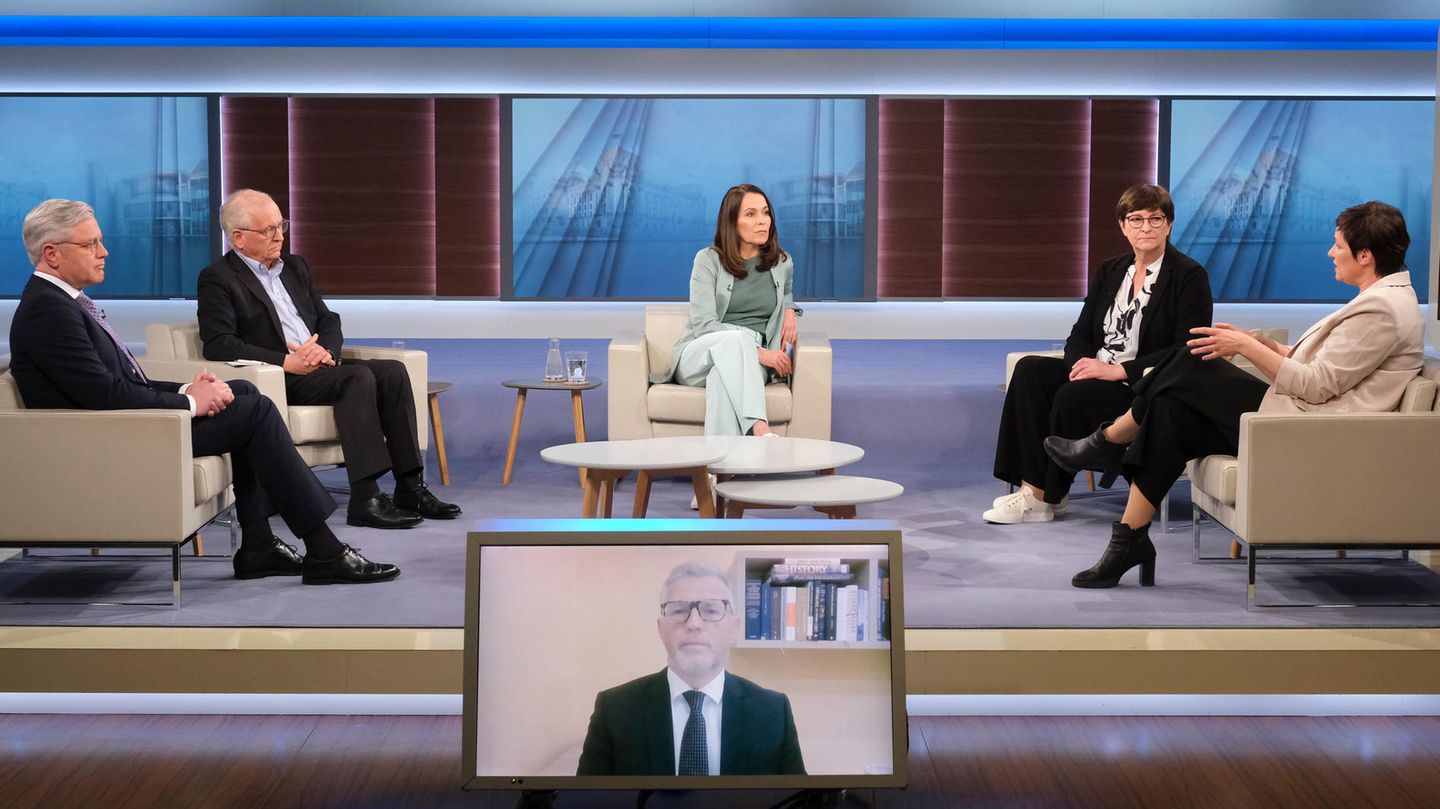Ukraine’s counteroffensive could begin soon. The hope lives on that Kiev will succeed in turning the tide in the war. The talk show on “Anne Will” tries to curb expectations and makes it clear: the war is far from over.
As Russia continues to shell Ukraine, Ukrainian troops prepare for the second major counteroffensive. When and to what extent this will take place is unclear. Yevgeny Prigozhin, head of the Wagner mercenary group, warned of a tragedy for Russia. But what are the chances that Ukraine will turn the tide in the war? The panel discussion at “Anne Will” discusses this and also asks the question: What happens if Ukraine’s counterattack fails?
Guest at “Anne Will”:
- Saskia Esken (SPD), party leader
- Norbert Röttgen (CDU), member of the Foreign Affairs Committee
- Wolfgang Ischinger, President of the Board of Trustees of the Munich Security Conference
- Andriy Melnyk, Deputy Foreign Minister of Ukraine and former Ambassador to Germany
- Nicole Deitelhoff, Professor of International Relations, Peace and Conflict Researcher
Ukraine is better equipped than ever, says peace researcher Nicole Deitelhoff. CDU politician Norbert Röttgen sees it that way too. However, the talk guests do not believe in the great turning point and a quick end to the war. This is also because Russia had enough time to prepare for the upcoming Ukrainian offensive, explains Deitelhoff. SPD leader Saskia Esken says very clearly: “The idea of a quickly effective counter-offensive is wrong.” She warns against excessive expectations and makes it clear that we must prepare for a long war.
Is there enough support for Ukraine?
Once again, “Anne Will” raises the question of whether Germany is doing enough to support Ukraine. While Saskia Esken bursts out in hymns of praise for Chancellor Olaf Scholz (SPD) and describes him as the mastermind of the Panzer Alliance, who managed to convince American President Joe Biden to supply tanks to Ukraine, Norbert Röttgen sharply criticizes the federal government. He accuses her of lethargy and vents his anger: “I can’t understand it.” From his point of view, Olaf Scholz is the one in Europe and in the entire West who has always hesitated when it came to supporting Ukraine.
Andriy Melnyk makes a quiet appearance on the talk show and largely refrains from critical words. The former ambassador of Ukraine in Germany certifies that the federal government has made a “quantum leap” after it started supplying protective helmets and vests at the beginning of the Russian war of aggression. Melnyk still has big demands. The last red lines would have to be crossed. According to Melnyk, this means in concrete terms: the delivery of fighter jets and one percent of the gross national product to support Ukraine.
Nicole Deitelhoff knows that Melnyk’s second demand is more than just unrealistic. Germany already has massive problems meeting NATO’s two percent target. In view of this, it seems even more difficult to allocate one percent of the gross national product to support Ukraine.
What happens if Ukraine’s offensive fails?
No talk guest wants to rule out the possibility that the Ukrainian counter-offensive could fail. Nevertheless, even in such a case, Ukraine should continue to be helped. “We will have to support Ukraine for a long time,” says Saskia Esken. The assistance provided by the federal government does not therefore depend on Ukraine’s military successes. After all, it’s not just about Ukraine’s freedom and sovereignty, says Esken: “It’s also about our sovereignty.”
Source: Stern
I have been working in the news industry for over 6 years, first as a reporter and now as an editor. I have covered politics extensively, and my work has appeared in major newspapers and online news outlets around the world. In addition to my writing, I also contribute regularly to 24 Hours World.




